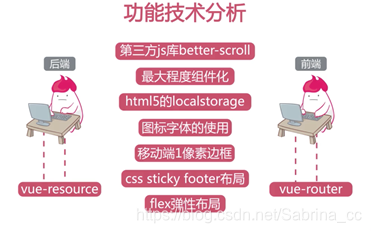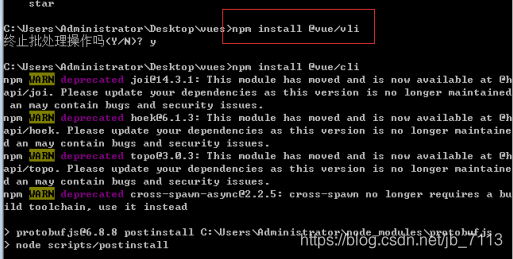基于Vue的前端微服务
1.微服务
前端微服务的架构是什么样的?我们可以先来看看后端的微服务实现。一个大的系统被切分成一个个小的模块,而且还可以独立部署,独立对外提供接口服务。大部分返回的数据是json格式。
这样的架构的好处是:某个模块的改动,不会影响(或者影响很小)其他系统模块;另一方面返回统一的数据结构,不同的客户端(pc、android、ios、html5)可以共用同一个接口;第三,微服务划分使得分布式扩展,容器化扩展更加方便,如果系统的某个模块访问量特别大,那么我们只需要对那一个微服务镜像多部署几个,就能提升性能。
2.前端微服务架构
说到微服务,首先想到的都是像springcloud、springboot、docker、k8s等这样的后端技术栈,而前端微服务却很少提及。
问题:
1.后端微服务返回json格式数据,每个客户端依然需要自己编写前端模板来展示数据。
2.不同的第三方系统可能会调用某个微服务,并嵌入到自己的系统中,依然需要写前端模板展示微服务接口返回的数据
构思:
1.能不能直接返回html模板,将微服务接口的数据展示好,直接使用
2.兼容Vue前端框架的路由
实现:
一、非vue第三方项目调用
直接引用编译后的js文件,可以将依赖库不打包,注意的引入方,需要有一个id与vue项目的渲染id一致,js文件加载之后,会自动加载到这个id的元素下
二、vue项目调用
主要思路:父框架要提供方法暴露路由,子模块获取父框架路由并注册进去
-
externalRoutes: [
-
//外部引入的路由
-
{
-
path: ‘/external’,
-
redirect: ‘/permission/page’,
-
alwaysShow: true, // will always show the root menu
-
name: ‘external’,
-
url: ‘http://localhost:8080/dist/column/static/js/app.bundle.js’,
-
description: ‘字段检测’,
-
meta: {
-
title: ‘外部引入’,
-
icon: ‘lock’,
-
roles: [‘admin’, ‘editor’] // you can set roles in root nav
-
},
-
children: [
-
{
-
path: ‘column’,
-
name: ‘column’,//name唯一,对应外部的路由
-
meta: {
-
title: ‘column Demo’,
-
roles: [‘admin’]
-
}
-
},
-
{
-
path: ‘stomp’,
-
name: ‘StompDemo’,//name唯一,对应外部的路由
-
meta: {
-
title: ‘stomp Demo’,
-
roles: [‘admin’]
-
}
-
}
-
]
-
}
-
]
-
-
window.addExternalRouters = function(routers){
-
if(userExternalRoutes && userExternalRoutes.length>0){
-
userExternalRoutes.forEach(item =>{
-
item.component = Layout
-
})
-
routers.forEach(item => {
-
insertComponent(item, userExternalRoutes)
-
})
-
-
-
for(const er of userExternalRoutes) {
-
asyncRoutes.push(er)
-
}
-
-
resetRouter()
-
router.addRoutes(asyncRoutes)
-
store.dispatch(‘permission/generateRoutes’, store.getters.roles)
-
}
-
}
子模块注册
-
-
if(window.addExternalRouters){
-
const exportRoutes = [
-
{
-
name: ‘column’,
-
component: HelloWorld,
-
description: ‘字段描述’
-
},
-
{
-
name: ‘StompDemo’,
-
component: StompDemo,
-
description: ‘socket长连接’
-
}
-
]
-
window.addExternalRouters(exportRoutes);
-
}
系统打开之后,首先要加载需要引入的前端微服务的js文件








